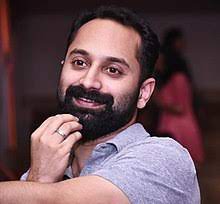A Quote by Woody Allen
My films are misinterpreted all the time. I don't mind that. Everybody's films are misinterpreted. But there's no malice or stupidity in the people that misinterpret them. You know what you do, but someone else sees it, and they want to talk about it or write about it, and so they misinterpret them.
Related Quotes
I often find in the film world, that it's very self-referring. If you talk to someone about films, they talk about them in terms of other films - rather than as something that happened to them in their life. And I'm really keen to get back to film as a reference to real things, not necessarily to other films.
The vampire or the bad guy, that's what people do remember. Lars von Trier, like Guy Maddin, their films are made for a group of exclusive people who like special films. And they are special films, they are art films. And I started with commercial films at the beginning, and later on, because you know, when you are an actor, you have the same cliché like everybody else, you want to be in big films, you want to be known and all that.
The romantic temper, so often and so grievously misinterpreted and not more by others than by its own, is an insecure, unsatisfied, and impatient temper which sees no fit abode here for its ideals and chooses therefore to behold them under insensible figures. As a result of this choice it comes to disregard certain limitations. Its figures are blown to wild adventures, lacking the gravity of solid bodies, and the mind that has conceived them ends by disowning them.
Conversations about films are always funny. I would say a majority of people want to talk about what were the more obvious successes; the big box office films. Other people wanting to be more sensitive to you want to talk about the ones that maybe didn't make a lot of money, but they think you might have a special feeling about. And then other people sometimes want to help you by suggesting that you should have done this or that in the movie, that that would have helped you a great deal in whatever capacity.
From the moment I met Martin Scorsese in 1962, he educated me about the films that had taught him so much about filmmaking. He had been deeply affected, even as a child, by great films that stretched his mind and struck into his heart, and he was eager to share them with friends and people who worked with him or with actors who were in his films.
Someone wanted me to write a profile for ESPN about the commissioner of baseball, and I said, "He's just some suit! Some Republican. No!" I mean if you want me to write about baseball, boxing or football, I'll write about those things because I watch them, I think about them a lot and I like them. But I don't want to write about Barry Bonds.
The '60s in London obviously brought about the explosion of music, the Beatles especially, and then the Rolling Stones and other forms of music, and then fashion and photography and films - kitchen-sink dramas we called them at that time, which was our nouvelle vague in Britain, films that talk about real life.
The '60s in London obviously brought about the explosion of music, the 'Beatles' especially, and then the 'Rolling Stones' and other forms of music, and then fashion and photography and films - kitchen-sink dramas we called them at that time, which was our 'nouvelle vague' in Britain, films that talk about real life.
I don't come from a film background. I haven't learned anything about films or film-making. But I have a thirst to know everything about my profession. I want to learn about cinematography, about editing, about music recordings, about post-production. So when people in the know talk, I willingly listen.






































